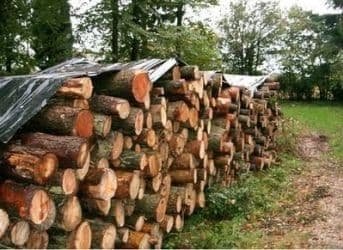Florida residents last year filed a legal challenge against a company that was planning to build a biomass incinerator in the Florida Panhandle. They complained the incinerator project was a "toxic nightmare" for the coastal area. Now, a new study conducted on behalf of the National Wildlife Federation finds that it might be awhile before burning wood instead of fossil fuels pays off for the environment. This suggests that maybe things aren't always as green as they seem.
A study examining more than half of the 22 proposed biomass facilities in seven southern U.S. states found that burning wood in favor of fossil fuels for electricity would reduce the amount of carbon dioxide in the atmosphere eventually. However, the same study found this wouldn't happen fast enough to offset other factors that most scientists claim contribute to global climate change.
The authors of the study anticipated a major expansion for the part of the power sector in the south that can use woody biomass to make electricity. Groups like Gulf Citizens for Clean Renewable Energy, however, aren't too thrilled with that idea. They say wood-fed incinerators would spew toxic fumes into the environment and use up valuable drinking water supplies. On the other side of the debate, advocates of woody biomass say that not only does the alternative fuel source cut down on energy costs, it's also good for an economy that might otherwise depend on foreign sources for energy.
The study for the NWF, meanwhile, said that as the biomass energy sector expands, more fuel sources are likely to come from standing trees as opposed to residue from saw mills and the like. This in turn could lead to a higher production of atmospheric carbon as carbon sinks disappear. The NWF said that once forests start to regenerate, the carbon footprint would shift. The study found, however, that biomass energy would produce more harmful emissions for at least another 35 years when compared to fossil fuels, though the was only the case for the southeast region.
The NWF study reveals that what should normally be considered an environmentally-friendly technology has its downside. The Southern Environmental Law Center, who helped with the NWF study, said that while wood is a good renewable resource, it's not exactly carbon neutral either. An energy sector that could be viewed simply as an alternative to fossil fuels has itself become something of a commodity used to generate capital. Nothing wrong with that. The NWF said now is the time to take a hard look at biomass to see what sort of regulation is needed as the sector grows. They want the EPA to step in to see what sort of balance they can find for biomass. Over the long run, the study found, burning wood instead of fossil fuels can be a good thing when it comes to environmental health, but those benefits aren't likely to materialize any time soon.
By. Daniel J. Graeber of Oilprice.com


















